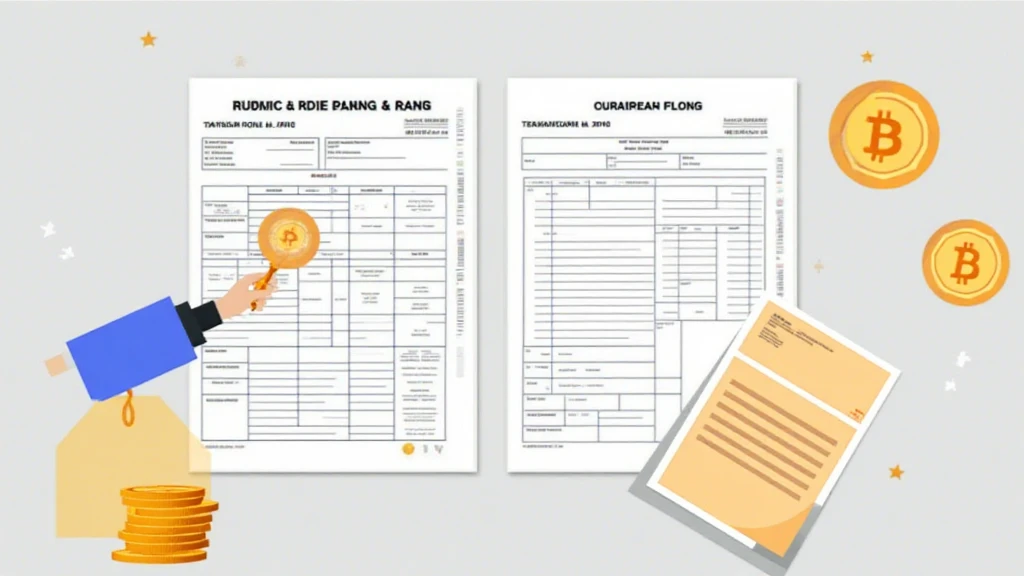How to Report Bitcoin Income on Vietnam Tax Filings
With the rise of cryptocurrency innovations, Vietnam has seen a significant increase in Bitcoin users, jumping nearly 500% in the last year alone. As more individuals turn to digital currencies, understanding how to report Bitcoin income on Vietnam tax filings becomes crucial not just for compliance but for contributing to the burgeoning financial ecosystem in the country. In this comprehensive guide, we aim to equip you with the knowledge to navigate this complex area.
The Current Landscape of Cryptocurrencies in Vietnam
According to recent statistics, Vietnam has approximately 16 million cryptocurrency users in 2023—with Bitcoin being the most favored digital asset. This rapid growth poses a challenge for regulators and taxpayers alike. Many users are oblivious to the tax obligations tied to their digital investments.
For the fiscal year 2024, the Vietnamese government issued new guidelines on cryptocurrency taxation, creating clearer pathways for individuals to report their earnings. This article will explore those guidelines and assist you step-by-step in filing your taxes accurately.

Understanding Bitcoin and Taxation Basics
First, let’s clarify how the tax situation works for Bitcoin. Any income derived from crypto-activities, be it through trading, selling, or earning interest, is considered taxable income.
- Personal Income Tax (PIT): Any profit made from Bitcoin transactions is subject to PIT under Vietnamese law.
- Value Added Tax (VAT): Cryptocurrencies are classified as non-physical assets. Any transactions involving Bitcoin could incur VAT.
- Disclosure requirements: There are mandatory declaration obligations for both individuals and businesses trading cryptocurrencies.
Steps to Report Bitcoin Income
Here’s a breakdown of the steps to report Bitcoin income on your Vietnam tax filings effectively.
Step 1: Record Your Transactions
Just like how a bank maintains records for every transaction, you should keep meticulous records of your Bitcoin transactions. Here’s what to include:
- Date of purchase or sale
- Amount of Bitcoin traded
- Price in Vietnamese Dong (VND) at the time of the transaction
- Purpose of the transaction (e.g., investment, payment for services)
Step 2: Calculate Your Gains or Losses
Your taxable income from Bitcoin will depend on your capital gains or losses. If you sold Bitcoin for more than your original investment, you have realized a gain. Conversely, if you sold for less, you have sustained a loss.
To compute:
- Capital Gain = Sale Price – Purchase Price
- If you held the Bitcoin for more than one year, you may qualify for lower tax rates based on long-term capital gains rules, as specified in the latest regulations.
Step 3: Submit Your Tax Filing
After gathering your financial information, it’s time to fill out the tax forms. Use the appropriate forms—typically, the Personal Income Tax (PIT) Declaration Form, which can often be submitted online through the General Department of Taxation’s e-filing system. Ensure that:
- You specify the source of income (Bitcoin)
- You include all calculated gains or losses
- Complete the declaration accurately to avoid penalties
Step 4: Keep Up with Tax Regulations
The blockchain space changes swiftly, often leading to new tax regulations. It is essential to stay updated with the Vietnamese tax authority’s announcements regarding cryptocurrency taxation. You might find helpful resources on official websites like hibt.com.
Future Outlook and Tips for Bitcoin Tax Filings in Vietnam
As Vietnam looks to establish a robust regulatory framework surrounding cryptocurrencies, taxpayers must remain vigilant about any shifts in policies.
- Consider Consulting an Expert: If you’re unsure of your tax obligations, consulting with a tax professional could save you time and potential penalties.
- Be Proactive: As the crypto market evolves, so too do tax laws. Staying educated will protect your investments.
- Use Tax Software: Leverage available tax software to automate calculation and filing processes.
Conclusion
In conclusion, knowing how to report Bitcoin income on Vietnam tax filings is no longer an option but a necessity for anyone involved in crypto trading. By following the outlined steps, recording your transactions accurately, and staying informed about changing regulations, you can navigate this new financial frontier smoothly. Remember, compliance today ensures a secure tomorrow in the world of cryptocurrency.
For more detailed insights and updates regarding Vietnam’s evolving crypto landscape, check out officialcryptonews.





